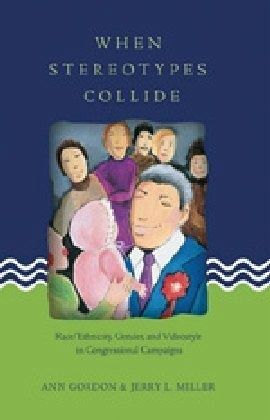
When Stereotypes Collide
Race/Ethnicity, Gender, and Videostyle in Congressional Campaigns
Versandkostenfrei!
Versandfertig in 6-10 Tagen
29,95 €
inkl. MwSt.

PAYBACK Punkte
0 °P sammeln!
Stereotypes are prevalent throughout our society. Using content analytical and experimental data in conjunction with case studies, When Stereotypes Collide explores the influence of gender and ethnic/racial minority stereotypes in the production of campaign messages created during congressional elections. Filling a void in political campaign research, this book draws specific attention to the uses and consequences of political advertisement videostyle strategies on the electoral fortunes of women and minority candidates.












